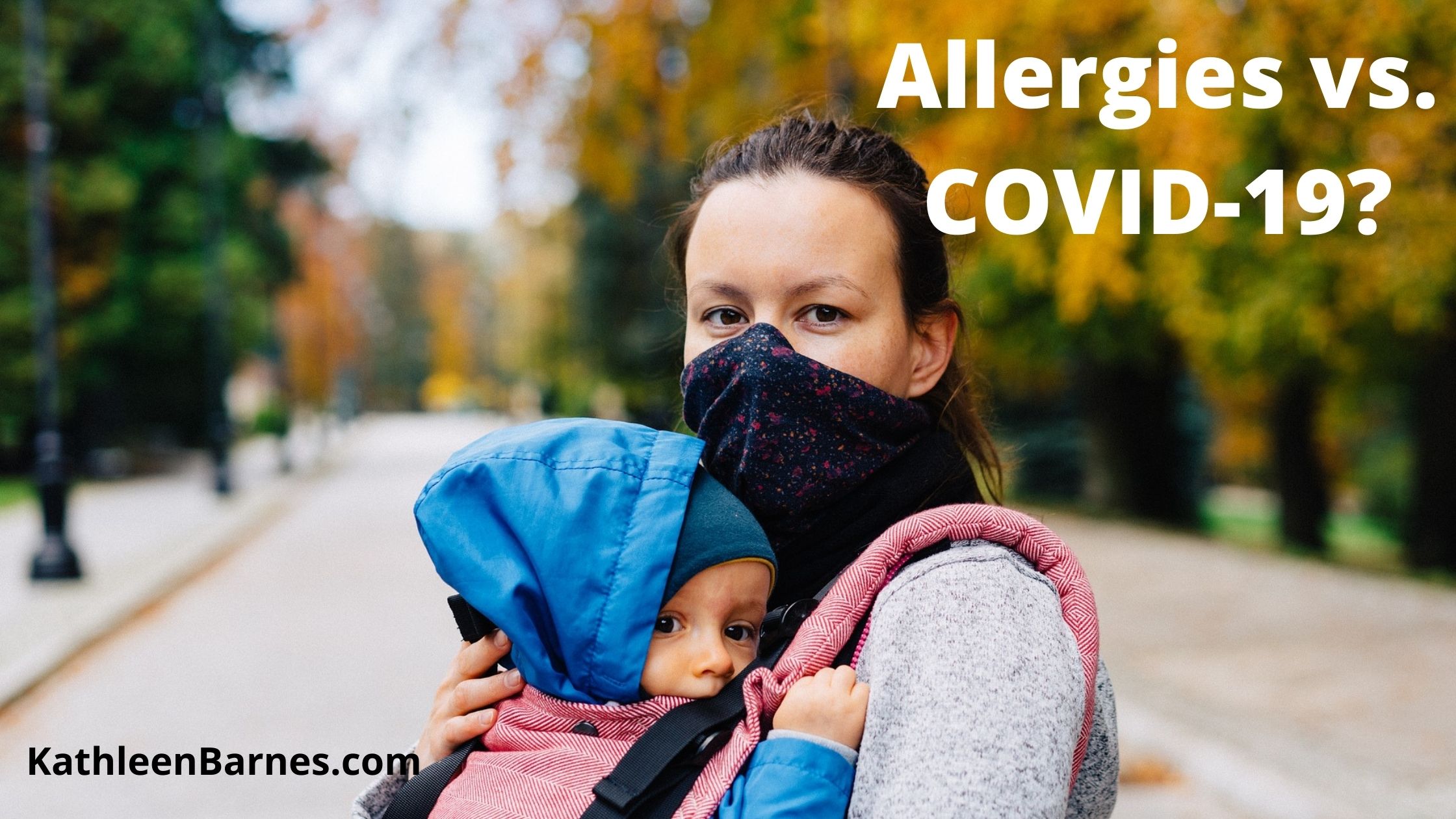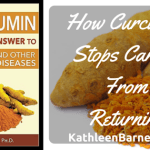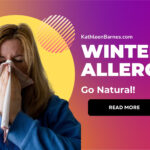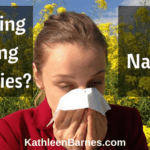OK–so it is seasonal allergies or COVID-19 or something else?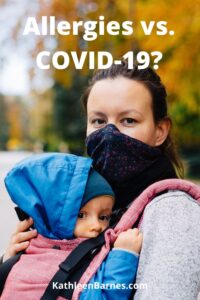
Those of us who live here in the American South are well into the throes of allergy season. Even those of us who never had allergies when we lived in other parts of the countries find ourselves laid low by the abundance of pollen this time of the year. It’s pretty miserable.
Now with the COVID threat, we’re all wondering if every cough or sneeze is coronavirus or just allergies or maybe a cold or maybe the “ordinary” or seasonal flu.
Many of the symptoms are similar, but there are some fairly clear-cut differences. I’m listing below the common symptoms of each of those maladies. Remember, you may not display all of the symptoms or even a majority of the symptoms. My intention here is to help you have a little peace of mind when symptoms emerge and to give you the tools you need to determine if it’s time to seek medical attention.
It goes without saying that you should be vaccinated. I know some of you will disagree with me, but the vaccines are safe and effective. The Delta variant has proven that those who are unvaccinated are at greater risk of serious illness, hospitalization and even death. Plus, you can be an asymptomatic carrier and spread the virus to those who cannot fight it off or who might long-term complications.
Whether or not you are vaccinated, you should wear a mask in public indoor spaces and in crowded outdoor situations because it will protect you and others.
Allergies vs COVID-19 – What symptoms should I watch out for?
The main hallmarks of COVID-19 are fever, chills and shortness of breath. If you have any of these, please get tested. Tests are available at virtually all pharmacies. If you are positive, of course, you should quarantine for at least 10 days from the time the first symptoms appear and you should contact your doctor for directions on treatment options.
Symptoms for the Delta variant are the same as for original COVID, but the virus is much more contagious. Breakthrough cases are possible even if you are vaccinated, but the illness is general much less sever for those who are vaccinated and the risk of hospitalization and death is much lower.
Here are some really simple benchmarks and differences between COVID-19 (Delta) and other viral illnesses:
COVID-19: Main symptoms: Fever, extreme fatigue, shortness of breath developing 5-10 days after onset of fever, cough, headache, sore throat, muscle aches, body aches, runny nose, nausea, vomiting, diarrhea. Some patients have sudden loss of taste or smell, which is a strong sign that it’s COVID and not something else. COVID-19 symptoms can appear any time between 2 and 14 days after exposure, but the person can be carrying the virus and transmitting it without experiencing any symptoms.
The Centers for Disease Control and Prevention says you should go to the emergency room if you or someone you care for experiences:
- Fever over 103 degrees Fahrenheit
- Trouble breathing
- Persistent pain or pressure in the chest
- New confusion
- Inability to wake or stay awake
- Pale, gray, or blue-colored skin, lips, or nail beds, depending on skin tone
There are treatments, including monoclonal antibodies that can be administered as soon as the first symptoms appear to prevent deterioration. Please seek medical attention early. I’m sure you are well aware that COVID-19 is life threatening. However, the vast majority of patients get well at home.
Allergies: Main symptoms: Itchy eyes and nose, runny nose, sneezing, post nasal drip causing coughing, wheezing, generally affecting only the respiratory tract. Fever is only very rarely associated with seasonal allergies.
Natural treatment: Cleansing your mucus membranes with neti (inhaling warm salt water through your nose), quercetin (found in onions and garlic), local honey.
Common cold: Main symptoms pretty much mimic seasonal allergies with addition of sore throat, stuffy nose, body aches and headaches. The difference is that allergies continue as long as you are exposed to the allergen, most commonly pollen. Sadly, that means it can go on for weeks or even months. The common cold usually diminishes after a few days, a week at most. Fever is rarely associated with a cold.
Natural treatment: Rest, drinking lots of water, elderberry tincture can shorten the duration, echinacea strengthens the immune system.
RSV (Respiratory Syncytial Virus): This common virus in children has become widespread as school begins. The symptoms are nearly identical to COVID-19, so it is essential to have the child and family members tested for COVID, including fever, cough, short periods without breathing (apnea), trouble swallowing, wheezing, flaring of nostrils or straining of chest or stomach while breathing, other breathing difficulties.
RSV is so common that most children have been exposed to it by the age of 2. However, it can be more serious among adults. RSV results in at least three times more hospitalizations in adults than in children and causes about 14,000 adult deaths a year.
Treatment: For most cases, the treatment is pretty much the same as for a common cold or flu. For people who are hospitalized, IV fluids and oxygen may be administered. In rare cases, a patient may be placed on a ventilator.
“Regular” or seasonal flu: Fever and body aches, chills, cough, exhaustion. The seasonal flu rarely causes shortness of breath except in later stages when pneumonia is developing. It usually comes on suddenly and lasts for about a week.
Natural treatment: Andrographis, olive leaf extract, oil of oregano in a diffusion, propolis.
You can find more detailed information from the CDC here: https://www.cdc.gov/flu/symptoms/flu-vs-covid19.htm
If you’re uncertain about the case of your symptoms, please get tested. Get vaccinated. Stay home as much as possible. Wash your hands often. Wear a mask in public places. Social distance.
Together we will get through this.

